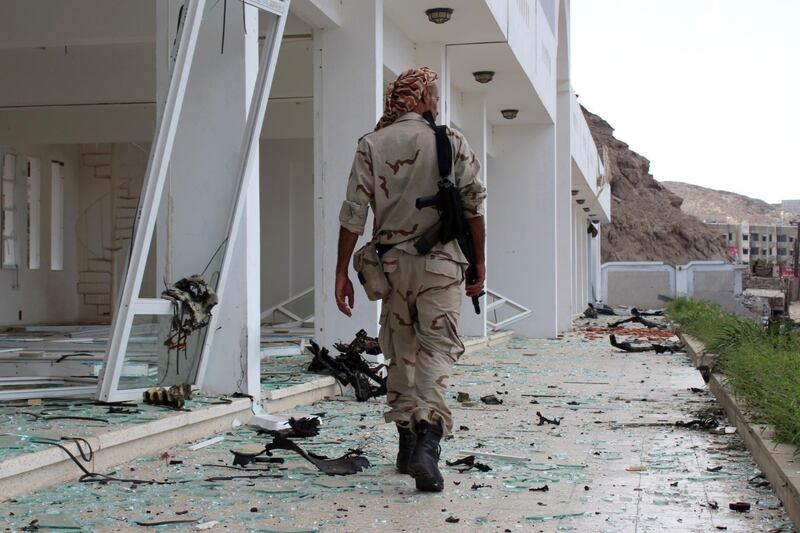Yemen's Southern Transitional Council has accused the Qatari government of supporting the Houthi rebels in an attempt to destabilise the region.
The Aden-based group, whose fighters are battling the Iran-backed rebels alongside the government troops backed by the Arab Coalition, said Doha was contributing financially to the rebels.
“Qatar has played a very negative role in destabilising the situation in Yemen by offering the Houthis and other terrorist groups all the support needed to remain alive to serve Iranian agendas, which aim to destabilise the Arab world,” said Salem Thabet Al Oulaqi, an STC spokesman.
Nazar Haytham, director of STC's Department of Youth, told The National that the Qatari government has been financially contributing to the Houthi group so that "they can buy more weapons".
“Qatar also provides media support to the Muslim Brotherhood and the Houthis via their Al Jazeera news channel as well as other networks in Iran and Lebanon,” he said.
___________________
Read more
Peace in Yemen needs more than two parties
Arab ambassadors’ letter warn on Qatar terror impunity
___________________
Saudi Arabia, the UAE, Bahrain and Egypt cut all ties with Qatar over its support for terrorist groups, including the Muslim Brotherhood. The four countries say that Doha must limit diplomatic relations with Iran and sever relations with the Muslim Brotherhood and other groups they identify as terrorist, including Lebanon’s Tehran-backed Hezbollah.
“The Qatar regime supported terrorist groups in Yemen under the guise that they were contributing to charitable organisations, most of which were affiliated with the Muslim Brotherhood and the Houthis,” said Mr Haytham.
The deputy director of the STC’s media department, Mansour Saleh, said there was proof behind allegations Qatar was supporting the Houthis in Aden, the Yemeni government’s de facto capital after the rebels took control of Sanaa in 2015.
"Security forces in Aden had evidence that they handed over to the Arab coalition a year before the countries cut ties with Qatar," he told The National.
The coalition has made the case for Iran's backing of the Yemeni rebels but Qatar is rarely publicly accused of backing the Houthis financially.
However, in May this year, a Qatari intelligence officer was arrested in Yemen on charges of collaborating with the Houthis. Named by Al Arabiya news agency as Muhsin al-Karbi, he was reportedly arrested as he attempted to flee the country through a cargo port.
Mr Al Oulaqi's position echoes that of Yemeni information minister and head of the Yemeni Media Association, Fahad al-Sharafi, who last month said that "the Qatari and the Iranian support for the Houthis was there since its emergence, but it was not clear until 2007 when Qatar interfered bluntly to save the Houthis who were about to become to an end."
He added that the support had allowed the Houthi's to buy weapons and support from different tribal groups who now back Qatar.
The Arab coalition, which includes Saudi Arabia and the UAE, intervened in the Yemen war in March 2015 at the request of the internationally-recognised government of President Abdrabu Mansur Hadi to restore its power and push back the Houthis.





